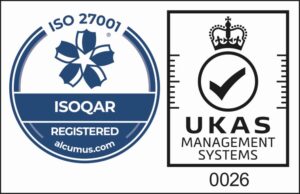IT MSPs and Business Continuity: Ensuring Resilience in Times of Crisis
In today’s fast-paced and interconnected business landscape, disruptions can occur unexpectedly, ranging from natural disasters to cyberattacks and other unforeseen events. These disruptions can cause significant downtime, data loss, and financial implications for businesses. Ensuring business continuity in the face of such crises is crucial for organizations to survive and thrive. This is where IT Managed Service Providers (MSPs) play a vital role. MSPs specialize in business continuity planning and support, helping businesses design and implement strategies to ensure resilience and continuity during times of crisis. Let’s explore the role of IT MSPs in business continuity and how they help businesses maintain operations in the face of adversity:
Risk Assessment and Business Impact Analysis
MSPs collaborate with businesses to conduct comprehensive risk assessments and business impact analyses. By identifying potential risks and vulnerabilities, MSPs help businesses understand the potential consequences of disruptions to critical systems and processes.
Business Continuity Planning
Based on risk assessments, MSPs work with businesses to develop robust business continuity plans. These plans outline step-by-step procedures and protocols to be followed in the event of a crisis. Business continuity plans encompass IT recovery strategies, communication protocols, and emergency response plans.
Data Backup and Disaster Recovery
MSPs play a crucial role in ensuring data protection and recovery. They implement reliable data backup solutions to ensure critical data is regularly backed up and securely stored. MSPs also design and implement disaster recovery strategies, enabling businesses to recover their IT systems quickly and resume operations after a disaster.
Cloud-Based Business Continuity
MSPs leverage cloud computing to provide cost-effective and scalable business continuity solutions. Cloud-based business continuity allows businesses to replicate critical data and applications to off-site data centers, ensuring data accessibility during disruptions.
Continuous Monitoring and Testing
MSPs continuously monitor IT systems to detect potential issues and vulnerabilities. Regular testing of business continuity plans and disaster recovery processes ensures that the strategies are effective and up-to-date.
Rapid Response and Incident Management
In the event of a crisis, MSPs provide rapid response and incident management support. They coordinate with businesses’ internal IT teams, third-party vendors, and relevant stakeholders to minimize downtime and expedite recovery.
Communication and Stakeholder Engagement
MSPs facilitate communication during a crisis, ensuring that employees, customers, and other stakeholders are kept informed about the situation and recovery progress.
Training and Awareness
MSPs conduct training sessions to educate employees about business continuity procedures and best practices. Enhanced awareness among employees fosters a proactive response to crisis situations.
Regulatory Compliance
MSPs assist businesses in meeting regulatory requirements related to business continuity and data protection. Compliance with industry standards ensures that businesses can operate legally and securely during crises.
Continuous Improvement
MSPs work closely with businesses to assess and improve business continuity plans based on lessons learned from real-world incidents and changing business requirements.
By partnering with IT MSPs for business continuity planning and support, businesses can mitigate risks and ensure resilience in times of crisis. MSPs bring expertise in disaster recovery, cloud computing, and proactive monitoring, helping businesses recover quickly from disruptions and maintain continuous operations. Through comprehensive business continuity strategies and ongoing support, MSPs play a pivotal role in safeguarding businesses’ future and reputation during times of uncertainty.




